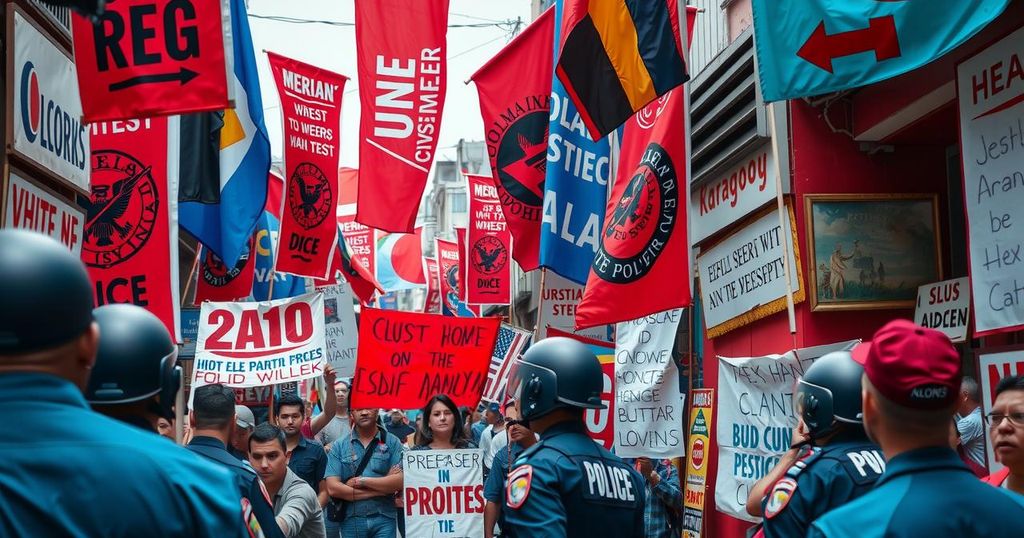Protests in Buenos Aires erupted as retirees opposed pension cuts, joined by football fans. The clashes with police led to numerous injuries and arrests amid heightened tensions over economic hardships under President Milei’s austerity measures. Authorities defended their actions despite accusations of excessive force, and fears grow of escalating unrest in the country.
In Argentina, significant protests erupted as retirees and football fans clashed with police in Buenos Aires, resulting in at least 15 injuries and over 100 arrests. Demonstrators gathered near the National Congress to oppose pension cuts implemented by President Javier Milei. As the protest gained momentum, football fans joined in solidarity, exacerbating the situation and prompting a heavy police presence that utilized tear gas, rubber bullets, and water cannons to manage the crowd.
Among the injured were a police officer who had sustained gunshot wounds and a protester who suffered a severe head injury from a tear gas canister. Notably, photojournalist Pablo Grillo was critically injured while documenting the protests, with his father accusing the government of excessive force. Disturbing videos circulating on social media further inflamed public outrage, showcasing the violent actions taken by police against elderly demonstrators.
The protests were fueled by ongoing anger regarding the government’s pension cuts that have negatively impacted many retirees, pushing them into financial hardship. President Milei’s economic reforms, intended to alleviate inflation and stabilize Argentina’s economy, included subsidy reductions and pension freezes, leading nearly 60% of retirees to survive on a minimal pension of approximately $340 per month.
Tensions escalated further when the Ministry of Security issued a ban on individuals involved in public disorder from attending football matches, a decision that was met with fury from fans who perceived it as an infringement on their rights. The chaotic scene saw riot police engaging with protesters who set fires and erected barricades in the streets, while chants likening Milei’s governance to a dictatorship resonated throughout the city.
Patricia Bullrich, Argentina’s Minister of Security, defended the police actions, asserting that their goal was to maintain order and prevent disruptions to traffic. However, this stance has received backlash from human rights advocates and opposition leaders, who criticize the government’s repressive measures amid an ongoing economic crisis that threatens to escalate unrest.
The protests in Argentina illustrate a significant discontent with President Javier Milei’s austerity measures, particularly concerning pension cuts that affect numerous retirees. The collaboration between pensioners and football fans highlights widespread frustrations with economic hardships. As the situation develops, public anger continues to mount, raising concerns that the unrest may exacerbate in response to the government’s perceived oppressive tactics.
Original Source: www.newsx.com




